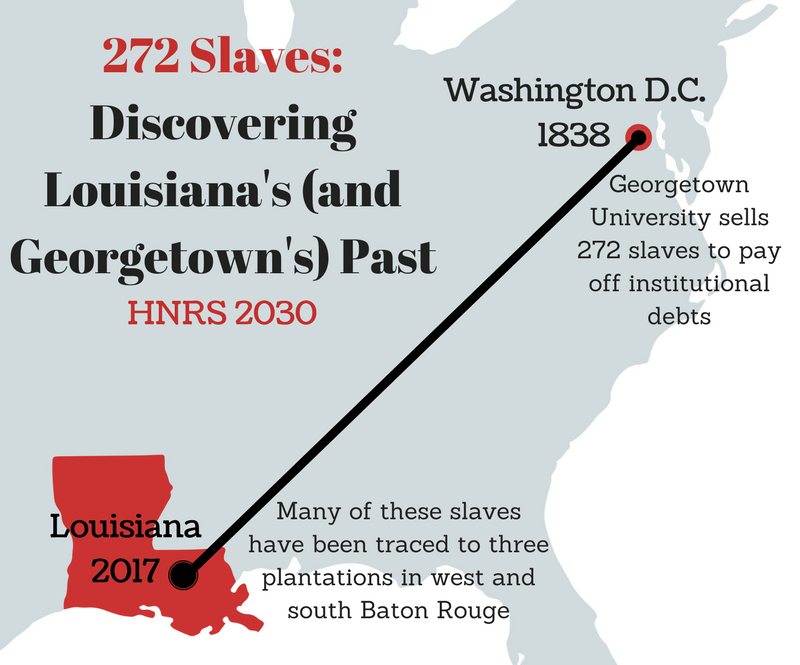Usually when University students see tour groups walking around campus, the groups are made up of prospective students. This week, however, University honors students are hosting Georgetown University visitors and walking them through the highlights of campus.
Professors from LSU and Georgetown University have come together to create what they call a “triangle” of courses between the two universities. Honors College Dean Jonathan Earle and instructor Jennifer Cramer created “272 Slaves: Discovering Louisiana’s (and Georgetown’s) History,” an honors course designed to create genealogical documentation of the 272 slaves sold by Georgetown University to plantation owners in Louisiana. Simultaneously, students at Georgetown are taking one of two courses on the subject — either a class regarding the historical context of the slave sale or a course on social justice and documentary media.
Throughout the semester, the students have taken multiple angles on the same subject and skyped to discuss what they learned.
However, Georgetown University students didn’t travel to LSU just to visit the LSU Dairy Store and tour Tureaud Hall, the first and only building named after an African American on the campus. During Georgetown’s spring break, the students in this “triangle” came together to meet with some of the 272 slaves’ descendants, visit the town of Maringouin and the Whitney Plantation. Visiting the area helps students put faces to the names they have been studying, Georgetown Professor Adam Rothman said.
“It’s one thing to read about history,” Rothman said. “It’s another to come face to face with the people in history you are reading about. It just makes it more immediate.”
During lunch at The 459, University students joined the visiting Georgetown students to discuss the differences between the two campuses. Danielle Hewitt, a Georgetown University film and media studies junior, said LSU’s campus is significantly larger than Georgetown’s while her classmate Michelle Laverto said she noticed Georgetown has a more rich political atmosphere.
Claire Nenninger, a Georgetown linguistics junior, said coming to Louisiana and speaking with descendants is an important step to learning more about their stories and continuing the discussion of this issue.
“Coming here is a way to show that the story didn’t end when the sale happened … this [course] is just continuing the story,” Nenninger said.
Each course’s culminating project attempts to bring history alive generations after the sale occurred, whether through a series of podcasts, a documentary or interviews with descendants of slaves.
“What’s amazing about this topic is that it shows a trajectory from the founding of our first academic institutions like Harvard, Yale and Georgetown,” Earle said. “And it brings it all the way forward to the 21st century.”
Georgetown University students visit LSU as part of collaborative honors course
March 8, 2017
More to Discover







